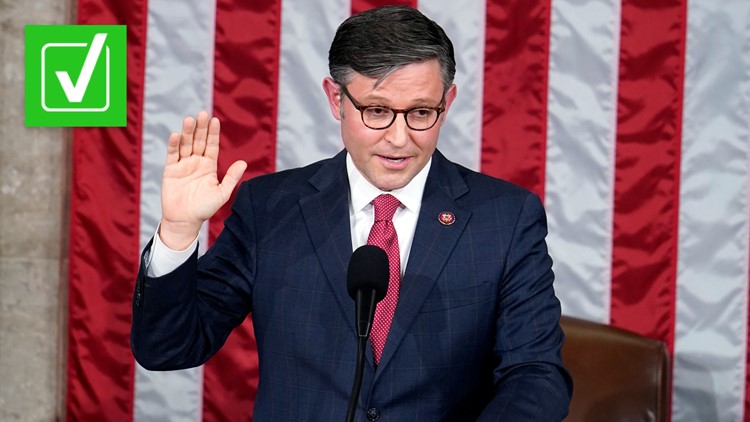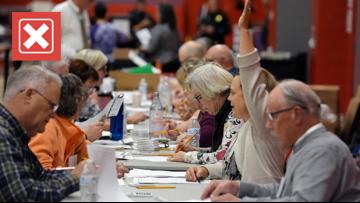After three chaotic weeks, Republicans in the House of Representatives finally elected Rep. Mike Johnson (R-LA) as speaker of the House. Prior to his election, Johnson was perhaps most well-known for assisting former president Donald Trump in his legal challenges that attempted to overturn the 2020 election.
Republicans elevated Johnson to speaker after several of the party’s most experienced leaders failed to get enough votes to win the position. Some people on social media have claimed the Republicans chose the least-experienced speaker of the House in 140 years as a result.
THE QUESTION
Is Mike Johnson the least experienced speaker of the House in 140 years?
THE SOURCES
THE ANSWER
Yes, Mike Johnson is the least experienced speaker of the House in 140 years.
WHAT WE FOUND
Rep. Mike Johnson (R-LA) first joined the House of Representatives in 2017, so he had six years of experience as a member of the House before being elected as speaker.
The last time a Congress member elected speaker of the House had six or fewer years in office was in 1883.
The U.S. House of Representatives lists every speaker of the House in its history on its website. The last time the House made a representative with six years or less of experience the speaker was in 1883, when John Carlisle became speaker six years after joining the House in 1877.
Carlisle succeeded the last speaker to have less experience than Johnson: Joseph Keifer, who became speaker in 1881, four years after joining the House in 1877.
Experience became a more sought-after trait in a potential speaker of the House after Carlisle and Keifer held the position in the 1880s, a Congressional Research Service report from 2017 said.
“In the 19th century, longevity of House service was not as important a criterion in selecting the Speaker as it is today,” the CRS report said.
Between 1899 and October 2015, the House elected 21 different speakers of the House. Those 21 speakers served an average of 23.3 years in the House before becoming speaker, the CRS report said.
That’s reflected in the House’s most recent speakers: Rep. Kevin McCarthy (R-CA) was in the House for 16 years before becoming speaker, and Rep. Nancy Pelosi (D-CA) was in the House for 20 years before she first became speaker.
But it was “not unusual for a Member to be elected Speaker with only a few years of service” for the first 120 years the House of Representatives existed, the CRS report said.
Between 1789 and 1899, the speaker of the House had on average 7.1 years of experience before taking on the position, the CRS report said. Three speakers during that time were freshmen, meaning they were simultaneously serving their first term in the House, the House of Representatives says.
Frederick Muhlenberg was speaker of the House during the first Congress in 1789, when every Representative was in their first term in the House. Henry Clay became speaker during his first term in 1811, and most recently William Pennington was a freshman speaker in 1859.
There are no rules requiring the speaker of the House have any particular level of experience. In fact, the speaker of the House doesn’t even have to be a member of the House of Representatives at all.













